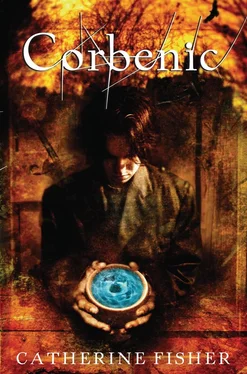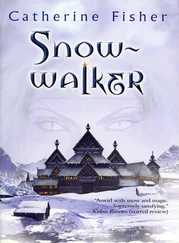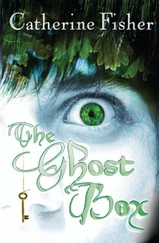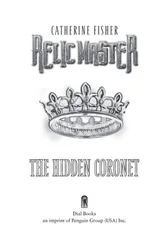Catherine Fisher - Corbenic
Здесь есть возможность читать онлайн «Catherine Fisher - Corbenic» весь текст электронной книги совершенно бесплатно (целиком полную версию без сокращений). В некоторых случаях можно слушать аудио, скачать через торрент в формате fb2 и присутствует краткое содержание. Издательство: HarperCollins, Жанр: Старинная литература, на английском языке. Описание произведения, (предисловие) а так же отзывы посетителей доступны на портале библиотеки ЛибКат.
- Название:Corbenic
- Автор:
- Издательство:HarperCollins
- Жанр:
- Год:неизвестен
- ISBN:нет данных
- Рейтинг книги:5 / 5. Голосов: 1
-
Избранное:Добавить в избранное
- Отзывы:
-
Ваша оценка:
- 100
- 1
- 2
- 3
- 4
- 5
Corbenic: краткое содержание, описание и аннотация
Предлагаем к чтению аннотацию, описание, краткое содержание или предисловие (зависит от того, что написал сам автор книги «Corbenic»). Если вы не нашли необходимую информацию о книге — напишите в комментариях, мы постараемся отыскать её.
Corbenic — читать онлайн бесплатно полную книгу (весь текст) целиком
Ниже представлен текст книги, разбитый по страницам. Система сохранения места последней прочитанной страницы, позволяет с удобством читать онлайн бесплатно книгу «Corbenic», без необходимости каждый раз заново искать на чём Вы остановились. Поставьте закладку, и сможете в любой момент перейти на страницу, на которой закончили чтение.
Интервал:
Закладка:

Contents
Cover
Title Page
Sword
Chapter One
Chapter Two
Chapter Three
Chapter Four
Chapter Five
Chapter Six
Chapter Seven
Chapter Eight
Chapter Nine
Chapter Ten
Spear
Chapter Eleven
Chapter Twelve
Chapter Thirteen
Chapter Fourteen
Chapter Fifteen
Chapter Sixteen
Stone
Chapter Seventeen
Chapter Eighteen
Chapter Nineteen
Chapter Twenty
Chapter Twenty-one
Chapter Twenty-two
Chapter Twenty-three
Cup
Chapter Twenty-four
Chapter Twenty-five
Chapter Twenty-six
Chapter Twenty-seven
Acknowledgments
About the Author
Credits
Copyright
About the Publisher
Sword
Chapter One
His mother kept him there and held him back . . .
Conte du Graal
Very far away, the voice said, “Who drinks from the Grail?”
Jerked out of a doze, Cal opened his eyes. Then he tugged the earphones off and rubbed his face wearily. The woman who had been sitting next to him must have gotten off at the last station; now her seat was empty. A man in uniform was wheeling a trolley down the aisle of the train; it was crammed with crisps and sandwiches and piles of upturned plastic cups around the shiny urn. The man caught Cal’s eye. “Drinks? Tea? Coffee?”
It would be embarrassing to say no, so he muttered, “Tea,” knowing it would be the cheapest thing. Then he dragged some coins out of his pocket and sorted through them, trying to look careless, as if money didn’t matter.
The train was a lot emptier now. It rattled viciously over some points; the trolley man swayed, balancing expertly in the aisle as he filled a plastic cup under the tap, the trolley rocking so that a small packet of biscuits slid off onto the empty seat. Chocolate digestives. Cal scowled. He was so hungry he almost felt sick. “Those too.”
Outside, wet fields flashed by, and some houses in a scatter of dead leaves. The man leaned over and flipped down the small table at the back of the seat, clipped the lid on the tea and put it down. A tiny bag of sugar. Milk. A plastic stirrer. The train clattered; Cal grabbed the hot cup in alarm.
“One pound thirty, sir, thank you.”
Sir. For a moment he thought the joker was making fun of him and glared up, but the man’s face was closed and polite, and once he had the money he trundled away up the carriage resuming his smooth, “Tea? Drinks?”
Cal leaned back and looked at the plastic cup with distaste. He hated tea. Coffee was more upmarket. He unclipped the lid and stirred the tea bag gloomily. When he’d made some money he’d really spend; travel first class where they had white china and linen, everything of the best. They’d call him sir and mean it then. He peeled the metal top from the milk and it sprayed everywhere. He swore aloud. The woman opposite glared at him. He glared back, scrubbing his jacket. This had cost. It wasn’t designer but it looked it. Or he hoped it did. The momentary fear that it looked cheap slid under his guard, but he squashed it hastily. Pulling the earphones back on, he let the music blast out the train noise, dipping a biscuit in the tea and watching the landscape through his own reflection.
He’d been on this train all day. It had left Bangor at nine that morning, late, so that his mother had lingered on the platform, tearful, her hasty makeup a mess, telling him to phone, going on and on about how much she’d miss him, couldn’t manage without him, about coming back for weekends, about keeping his room the same. His room! He thought of the little box with its grubby paper and the neighbor’s baby wailing through the walls. He was well shot of that.
Uncomfortable, he shifted. Why had she had to come? Anyone might have seen her, and as usual she’d been barely sober from the night before. He’d gone to find a seat long before the train started; still she had tapped on the glass and waved and cried at the window. Remembering her crumpled misery and runny mascara, his hand clenched on the empty cup; he felt the plastic crackle and then crushed it slowly. His face was hot. But the weak tea had made him feel better, and the biscuits. He hadn’t eaten anything since breakfast, and he’d gotten that himself, as he always did.
The train slid into a station, brakes screeching. Cal rubbed a circle of damp off the glass and looked out. Craven Arms, the sign read. Another place he’d never heard of. Mountains, a few people running under umbrellas, the bare platform plastered with clotting autumn leaves. Like all the rest of the stations that day.
As they pulled out, the carriage lights went on. All at once, outside it seemed dark, the early dusk of November. Hills closed in as the train ran below them; odd craggy ridges, tree-covered. Most people had gotten off; no one had gotten on. Once, a mobile phone burbled stupid music; far down at the end the refreshments bloke was reading a paper with his feet on the opposite seat.
Cal leaned back, yawning. He was so tired of sitting still, so stiff. The music was tinny, the batteries fading; he flicked it off with a groan and immediately the rhythmic clatter of the train came back, rocking him, comforting. He had at least another hour till Chepstow. Through the steamy windows he could only see himself, looking crumpled, and then very faintly a line of high forestry dark against the twilight. In a farmhouse the windows were lit, looking warm and snug. A girl walking a dog waved to the speeding train. He wrapped his coat around him, and closed his eyes. As the train roared into the blackness of the tunnel, he put his feet up on the seat, leaning awkwardly with his head against the window. It would be all right now. He’d planned this for years; he’d made the break. Life would be different. His uncle would meet him in some big, flashy car. He wouldn’t have to see her anymore. He wouldn’t have to hide the knives and the bottles ever again.
He woke abruptly. A voice was crackling over the PA. Somewhere in his head the echo of what it had said was just out of reach, but it had been Chepstow, he was suddenly, coldly sure. The train was already stopping; outside, a lamp loomed close to the window.
Cal panicked. The train was empty. He scrambled up, confused. Dregs of tea from the crumpled cup spilled on him; he grabbed his coat, jerked his rucksack down from the rack and ran, past tea-stained tables and abandoned newspapers. Outside the windows it was pitch dark. He jabbed the door button anxiously; as the doors swooshed open he jumped out and looked up the length of the train.
“Hey! Excuse me!”
Far down in the frosty dark the guard stepped back into the train. Doors slid shut. Cal yelled, “Wait! Listen! I need to know if this is . . .”
His voice was lost in the roar of the engine; the train was moving, gaining speed, and he ran after it, and saw through the flashing windows the dripping sign in the hedge opposite. It said:
Читать дальшеИнтервал:
Закладка:
Похожие книги на «Corbenic»
Представляем Вашему вниманию похожие книги на «Corbenic» списком для выбора. Мы отобрали схожую по названию и смыслу литературу в надежде предоставить читателям больше вариантов отыскать новые, интересные, ещё непрочитанные произведения.
Обсуждение, отзывы о книге «Corbenic» и просто собственные мнения читателей. Оставьте ваши комментарии, напишите, что Вы думаете о произведении, его смысле или главных героях. Укажите что конкретно понравилось, а что нет, и почему Вы так считаете.








